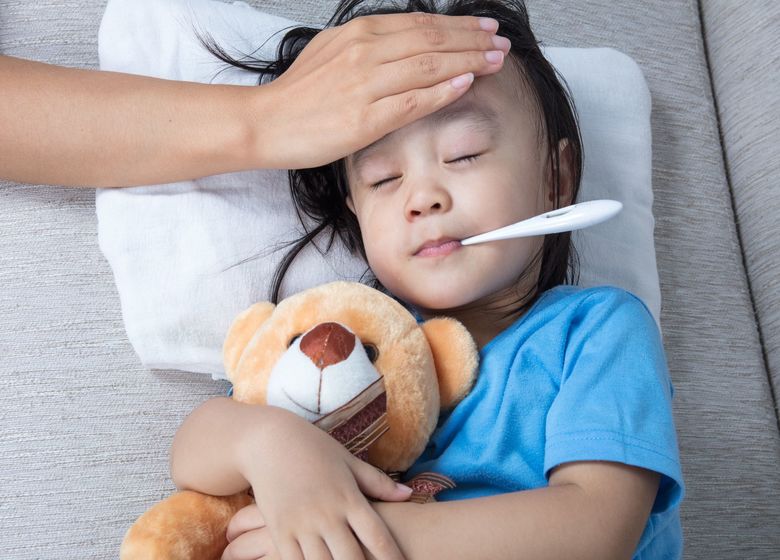Deworming is your first step as soon as you notice your child’s symptoms of intestinal worms. There are different ways to deworm your child However, depending on how your child is infested, the treatment differs. You can get rid of your intestinal worms in kids by prescribing medication for older children or by using syrup for kids, as your doctor has recommended.
What Are Intestinal Worms?
Parasitic worms like tapeworms, roundworms, pinworms, and hookworms are intestinal worms, which cause some people problems after their body begins to infect. These fester in human and animal intestinal walls and, when left untreated, contribute to larger health problems. The common cause of intestinal worm infestation in the human body is unhygienic and unsanitary surroundings and the consumption of contaminated water or food. There are few signs that may be associated with these parasitic worms being infested. Early diagnosis will help to identify the type of worms with which your child is infected. Once the worm type is identified, your child can be easily treated with the help of your doctor’s prescribed deworming medication.
What Is Deworming?
Deworming is the process by administering an anthelmintic medicine/drug to expel intestinal worms or parasitic worms from the body. In other words, getting rid of intestinal worms is a medicated process. The deworming process involves the use of medications for anthelmintics.
Causes of worms in kids
Children have several causes of worms. Below are some of the common ways in which children can become victims of parasitic worms:
- Water is the most common means of infection. Drinking contaminated water can cause your children to be infested with worms.
- Poor hygiene is another way to get these worms into your body.
- Uncooked meat consumption of an infected animal or uncooked fruit and worm-infected vegetable.
- Worm-infested soil is another culprit behind your child’s infestation.
- Also, infected pets can become the carrier of these parasitic worms that can move easily from your pets to your baby.
- Lack of sanitation is one of the causes of worm parasites, especially for those who, after using the toilet do not wash their hands.
In an unhygienic climate, parasitic worms or intestinal worms breed. When your children usually touch or play in the dirt with stuff such as worms, they end up with worm eggs on their hands that travel to the body if they touch the mouth or eat directly with them without washing their hands.
Symptoms of Worms in Kids
- Weight loss.
- Appetite loss as well.
- Anemia can be related to parasitic worms.
- Tiredness, weakness or hunger due to worms.
- Blood in the stool
- Diarrhea or constipation
- Urinating frequently
Diagnosis Of Worms In Kids
When you notice the signs of worm infestation in your child, you must consult your doctor and treat your child without a second thought.
In children, there are numerous ways to diagnose worms, such as taking stool samples to examine the presence of worms or taking a blood sample to examine the presence of antibodies that our body usually produces when parasite attacks.
Common methods of diagnosing worms in kids
1. Fingernails checking
Since your hands are the primary mode of ingestion transferring worms inside the body, worms also leave their eggs under fingernails. To assess the existence of worms, the doctor will examine the region under the fingernails of your baby.
2. Stool Examination
To check for worms, the stool can be examined. If positive, it shows that in the intestines there are worms.
3. Sticky Tape Test
This is a common test to test for the worm’s presence. The doctor adheres a piece of tape to the bottom of the child. The tape, if any, should contain some worm eggs. This will then be removed and sent to the laboratory for testing worm eggs that stick to the tape.
Treatments
Parasitic worm care depends on your child’s type of worms and symptoms. When you eat a healthy diet and have a strong immune system, worms like tapeworms can die on their own. However, in most cases, as prescribed by the doctor, you should consult your doctor and follow an anthelmintic treatment. Since parasitic worms lay eggs within the body of their host and continue to multiply if left untreated for a long time, it makes deworming even more difficult and time-consuming.
Medicine for Deworming
Deworming medicine for children varies according to the age of your child and the type of worms with which they are infected.
- Oral medication such as praziquantel (Biltricide) is used to treat tapeworms. This medicine paralyzes the tapeworm and dissolves it, which is then passed through the stool.
- Using mebendazole (Vermox, Emverm) and albendazole (Albenza), roundworm infection is treated. After a few weeks, the result of effective therapy becomes visible, and it is recommended that you visit your doctor for another diagnosis after completion of therapy to ensure thorough deworming.
Prevention
Prevention is better than the recovery at all times. There are several ways your kid can get infected with intestinal worms like playing in infested soil, grass, and sand and eating food from unhygienic places and coming into contact with people already infested with worms. Below are a few worm prevention tips:
- Before eating food, make sure your kids wash their hands properly with soap.
- Clean fruits and vegetables before eating properly, and also ensure that worms do not infest anything you consume.
- Stop children from playing barefoot in dirt, gravel, weeds or other areas outside.
- Prevent your children from consuming uncooked meat, especially pork and fish, which are known to contain worms.
- Make sure your children’s swimming pool meets the hygienic standards.
- Avoid using public places to drink water. Only drink water that is filtered.
Nevertheless, as we all know, prevention is the best treatment, and steps should be taken as far as possible to prevent your children from coming into contact with these parasites.
Also Read: Home Remedies For Your Toddler’s Diarrhea













